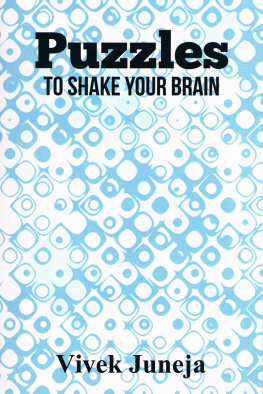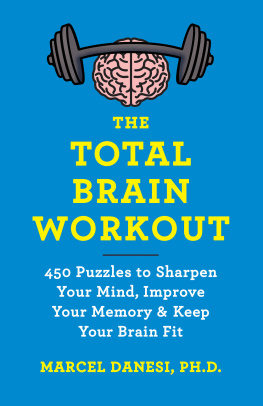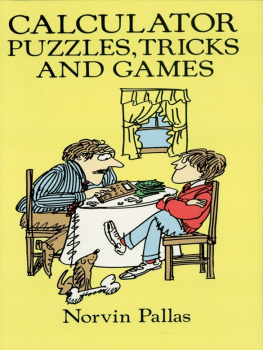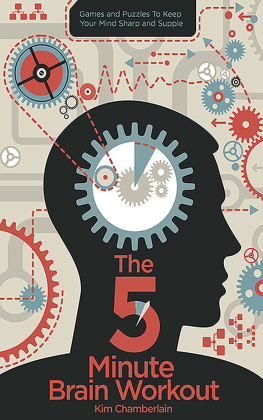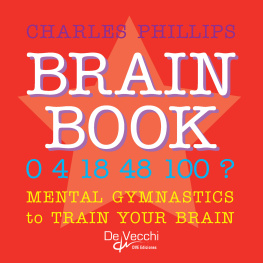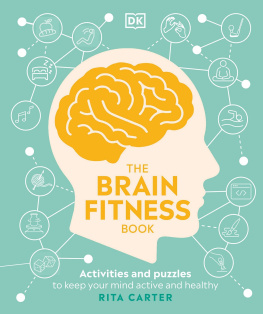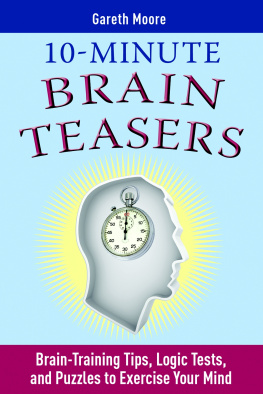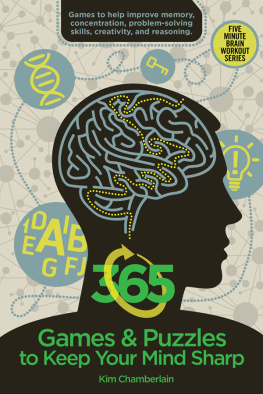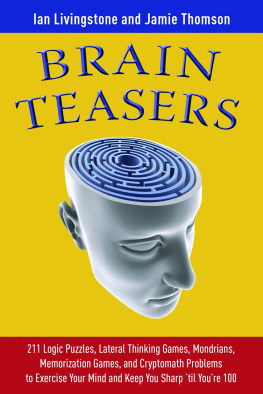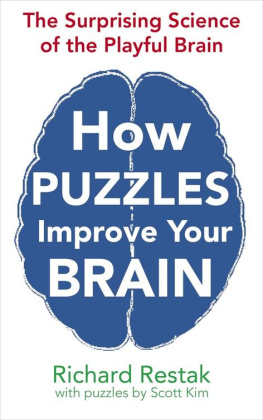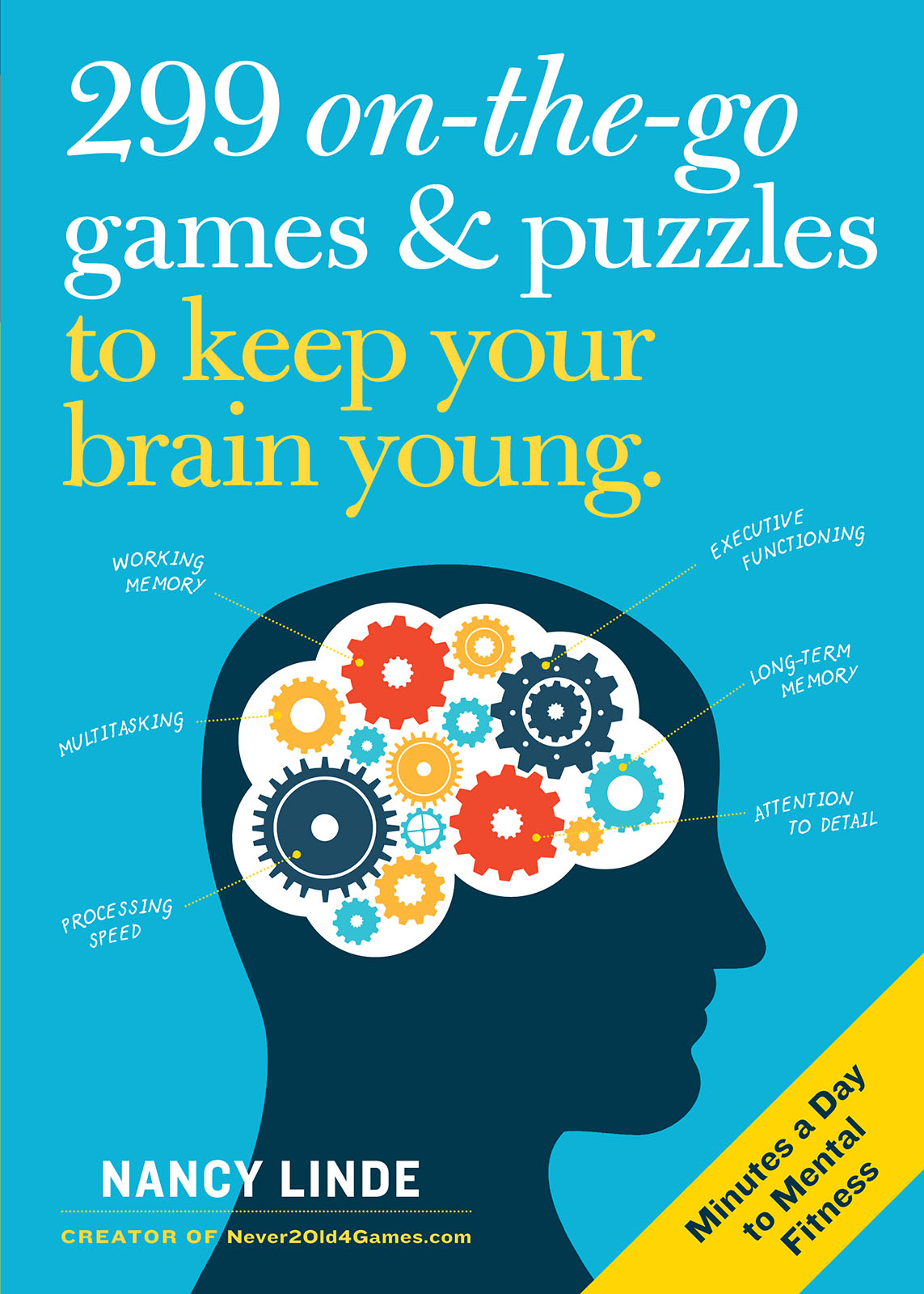Contents
Chapter One
Chapter Two
Chapter Three
Chapter Four
Chapter Five
Chapter Six
A Word from the Author
O ne of the more rewarding aspects of writing a book of games and puzzles is hearing from so many of youthe readers. Your emails and letters remind me that for many people, games can be much more than just an amusing diversion.
Games often bring people together. One family in the Midwest wrote that they had the best Thanksgiving ever when four generations of women (mother, daughter, granddaughter, and great-granddaughter) spent hours after dinner playing the games and laughing up a storm.
Games can also offer a welcome distraction during difficult times. A man in upstate New York was going through weeks of surgery, chemotherapy, and radiation. His wife wrote to thank me. Your books got us through, she said, I dont know what we would have done without them.
Ive heard from teachers who use my games to start each day with a little fun; from speech therapists who use them to help victims of stroke or head injuries regain their voices. And I hear from so many adult children of parents who are in the early- to mid-stages of dementia. They struggle, not always successfully, to find ways to communicate with Mom or Dad. Playing carefully chosen games can briefly recapture an easier time and provide some moments of shared joy.
Games Are More Than Just an Amusing Diversion
The benefits of games go even further. Recent research shows that people who are mentally active in their later years (solving brain games, learning to play a musical instrument, taking up chess, or even learning a foreign language) are more mentally sharp, cognitively agile, and have better memory functions. In the same way that physical exercise postpones and reduces loss of muscle mass and increases physical flexibility, mental exercise sharpens memory, concentration, and mental flexibility.
How can you use this book to help your brain? Ill get to that in a minute, but first a word of caution. Games are just one part of a healthy lifestyle for a healthy brain. Nothing beats the basics, which include eating properly, getting enough sleep, and getting some physical exercise every day... you know the drill. But one thing is certainof all the things you do to stay healthy, games are likely to be the most fun!
How to Use This Book
If you simply like word games and brain puzzles, then dig right in and start playing. But if you are also a person who wants to improve your memory and sharpen your mind, read on. Because this is not just a book of games, it is also a rigorous exercise workout to keep your brain in tip-top shape.
What follows is a summary of the same good advice that Philip D. Harvey, PhD, provided in my previous books (399 Games, Puzzles, and Trivia Challenges Specially Designed to Keep Your Brain Young and its follow-up volume 417 More Games, Puzzles, and Trivia Challenges Specially Designed to Keep Your Brain Young). It will help you identify which of your own cognitive functions need a good workout and suggests some of the games that will help.
Just keep in mind that a fitness routine for the brain works just like an exercise program for the body. If you want to build up your biceps, you might start lifting weights; if you want to tighten your abs, you would probably do abdominal crunches. Applying that same logic to the brain, if you want to improve your long-term memory, you should choose games that are challenging for you and that stretch those cognitive muscles. Or, if youd like to process your thoughts faster and with more clarity, then you should look for games that address processing speed.
Six Key Cognitive Skills That Are Vulnerable in Normal Aging
Living normally and independently in the world requires many different cognitive abilities. Some, such as basic perception (sight, hearing, etc.) and sensory processes (touch, taste, etc.), usually dont change much in normal aging. Other cognitive functions are more vulnerable. A few years ago, we worked closely with Dr. Harvey to identify the key mental functions that are more likely than others to change with age. They are:
- Long-term memory
- Working memory
- Executive functioning
- Attention to detail
- Multitasking
- Processing speed
Lets take a closer look at each of those cognitive functionsthe symptoms that frequently occur when age-related deterioration has taken place, and some of the games to look for that work specifically on that mental skill. Youll note that throughout the book we have labeled each game with the cognitive skill (or skills) that it primarily exercises.
- LONG-TERM MEMORY. Long-term memory is exactly what the label impliesthe ability to remember people, objects, or events that occurred in the distant past. If you have noticed occasional memory lapses, such as details from a long-ago vacation or the name of your favorite high school teacher, you should play games that exercise your long-term memory skills. Three good examples include: Counting Syllables, Run the Alphabet, and Two By Three.
- WORKING MEMORY. Also called functional short-term memory, working memory is a basic mental skill. Its important for both learning and carrying out many everyday tasks. It enables the brain to briefly hold new information while its needed in the short term. Working memory is in operation when you keep in mind the steps of a recipe while cooking a favorite family meal or going to the grocery store for four or five items without having to make a list. Games that boost your working memory skills include: Double Trouble, Give Me a Word That..., and Whats the Word?.
- EXECUTIVE FUNCTIONING. Executive functioning is a critical cognitive skill for everyday life.Without it, your life would be an unorganized mess. It involves solving problems by using information you already possess to work out novel solutions to a task or problem. If, for example, you are finding it more challenging to get organized and to accomplish routine tasks (such as running your weekend errands) efficiently or, if you find it hard to get out the door with everything you need (keys, phone, glasses), you should shape up your executive functioning skills. Three examples of fun ways to do that include Fill In the Letters, Is or Isnt?, and Odd Man Out.
- ATTENTION TO DETAIL . The process of absorbing small details when learning new information requires the ability to concentrate and stay focused. If youre finding it hard to follow instructions when setting up or using new technology (such as a microwave oven or a DVD player), or if you have to study a subway map again and again to figure out how to get from point A to point B, or if you are having problems navigating a website to purchase an item or fill a prescription, you may need to play games that exercise your focus and concentration skills. Three examples of games that improve your attention to detail are Change a Letter, Sentence Sleuth, and Wacky Wordy.
- MULTITASKING. Multitasking is a modern word that basically means doing more than one task at a time. Do you find yourself avoiding telephone meetings because you cant talk, listen, and take notes at the same time? Do you have trouble operating multiple controls in the car (radio, wipers, lights) while you are driving? Or do you need complete silence around you in order to read a book or work on your computer? If any of those symptoms apply to you, try games such as


